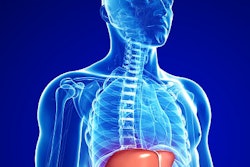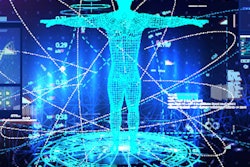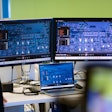Dear Artificial Intelligence Insider,
The virtual RSNA 2020 meeting featured an abundance of artificial intelligence (AI) content, including a variety of studies from European researchers.
For example, a group from Germany presented its work on using transfer learning to develop a deep-learning algorithm for identifying cirrhosis on standard T2-weighted liver MRI exams. In testing, the team's model was able to classify cirrhosis at a level of accuracy that was comparable to that of a board-certified radiologist.
In addition, researchers from France and Canada reported that a machine-learning algorithm could provide better preoperative risk classification of complex cystic renal lesions than relying only on the commonly used Bosniak criteria.
In two separate studies, presenters from the U.K. and the Netherlands described how AI software could help decrease the number of interval breast cancers -- malignancies that are identified in the time period between a normal screening mammography exam and the next round of screening. The researchers found that AI could have helped to detect a significant percentage of these cancers on the prior screening mammogram.
Additionally, a deep-learning algorithm can detect and quantify regions of free air on CT images, enabling patients with these critical pathologies to be prioritized on the radiology worklist. Based on analysis of chest CT exams, AI can also predict if COVID-19 patients will need to be admitted to the intensive care unit.
In other news, a group from the United Arab Emirates discussed the need for structured training programs to facilitate the incorporation of AI into medical imaging. In addition, AI can identify sarcopenia on routine brain MRI in glioblastoma patients, paving the way for predictions of how long they might survive.
AI also played a role in the radiology response to the COVID-19 pandemic in France, and it can help to forecast the need for supplemental oxygen in patients with the disease. A Dutch survey revealed that most women weren't yet comfortable with only an AI algorithm interpreting their screening mammograms. Instead, they preferred AI be used only as a second reader.
Dutch Finance Minister Wopke Hoekstra drew strong criticism in October from the Dutch radiology community for his remark that radiologists, along with cashiers, will be "mostly unnecessary" in the future, as "machines have become better at reading medical images than a human who has spent 10 years studying for the task." In a contributed article for AuntMinnieEurope.com, Dr. Merel Huisman, PhD, provided a rebuttal to Hoekstra's comment and shared her perspective as a member of the younger generation of radiologists.
Is there a story you'd like to see covered in the Artificial Intelligence Community? Please feel free to drop me a line.
Happy holidays from all of us at AuntMinnieEurope.com!



















